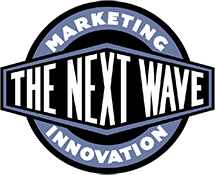First off, I have to plug one of my favorite guerrilla marketing websites: In Bubble Wrap- www.inbubblewrap.com where a small bookseller, 800 CEO Read, www.800ceoread.com is competing with Amzon.com and Barnes and Nobel, on a shoestring. Instead of spending hundreds of thousands of dollars on advertising, they give away 20 copies of a business book each day to an audience interested in business books. Considering the cost of the books (which they may get as a promotional copies anyway) and the cost of the site and postage, they are getting huge exposure for minimal dollars.
Not only do I have the opportunity to win, I learn something each day about a current business book. Today, the book talked about how Pepsi added marketshare by being the more politically correct marketer, in a day when all the people in ads were lily white.
InBubbleWrap: Pepsi Gave Us Some Jackie Robinsons
In the late 40’s and early 50’s, while Coca-Cola was visibly and enthusiastically supporting Georgia’s racist governor Herman Talmadge, Pepsi’s progressive CEO, Walter Mack, saw a way to make his uphill battle with Coke even out. And to be clear on this, yes, his primary motivation was the pursuit of profit. So, he decided to approve a campaign targeted at black consumers, and at the same time, hired someone to put together a team of all black sales people to push Pepsi on the African-American community. It worked. Pepsi soon became known as a “liberal” soft drink, inspiring entire communities to favor their beverages. Pepsi basically revolutionized the strategies of niche marketing.
Compare this with today’s attempts to connect with “new” markets. Dove has made a lot of noise and gotten a lot of attention with their Campaign for real beauty where they attempt to use models that look more like real women than waifs.
With Pepsi, it’s an example of a company going against prevailing social policy looking for profit. Corporate America now regularly enters political battles by supporting lobbyists and giving to political campaigns- and many hedge their bets giving to both sides. Being more “Green” is a marketing strategy with a political bent, and Toyota and Nissan have campaigned to tell us that many times their products have more American made content than American cars. Looking at “The Pepsi Challenge” I’m wondering if a company is going to position itself as an anti-war company to cash in on the growing displeasure with the war?
The best advertising creates an emotional response within the potential customer- we’ve seen companies wrap themselves in the flag for years- who will be the bold one to question the war first? Or has it been done?
What do you think?
